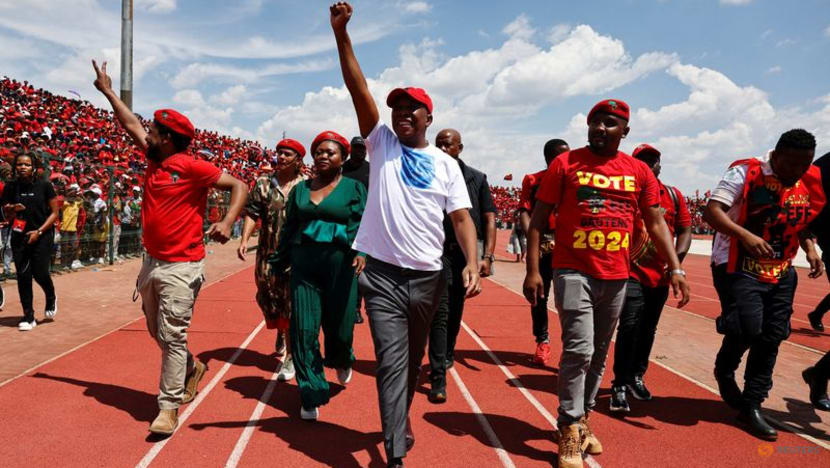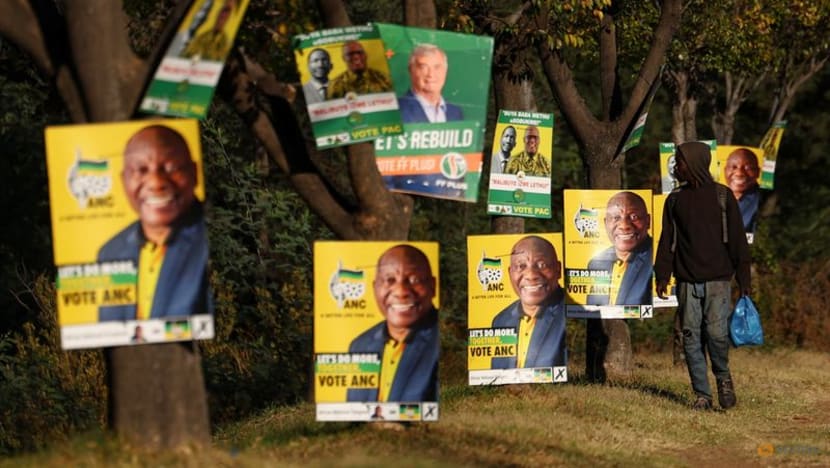High unemployment, poor economy driving more overseas South Africans to vote in general election
Many have grown increasingly dissatisfied with the ruling African National Congress, which could lose the majority vote for the first time in 30 years.


This audio is generated by an AI tool.
Stubbornly high unemployment. A collapsing economy. Corruption allegations.
These pressing issues are prompting thousands of South Africans living abroad to cast their votes in what is shaping up to be a watershed general election for their country.
Recent polls have suggested the ruling African National Congress (ANC) could lose the majority vote for the first time in 30 years.
The party broke apartheid rule in 1994 under the leadership of former president Nelson Mandela, who symbolised hope and prosperity for many in the country.
But for many young South Africans, the mood has long soured.
The ANC, besieged by demands for change, is calling on voters to provide a fair assessment of the gains and losses made over the past three decades.
Its message at home and abroad remains consistent: It is working to address challenges in Africa’s leading economy.
The country heads to the ballot box on Wednesday (May 29) in its seventh democratic general election.
“IF YOU DON’T VOTE, YOU CAN’T ARGUE”
According to the South African Electoral Commission, more than 76,000 citizens registered to vote abroad this year – more than double the 30,000 who registered in the last election in 2019.
They are among those who have grown increasingly dissatisfied with the ruling ANC, saying the party has failed to live up to its promises.
The country’s skyrocketing unemployment rate, which reached 32 per cent last year, along with persistent economic inequalities, corruption allegations and frequent power cuts, have reduced the party’s popularity.
CNA spoke to several South Africans living in the Tanzanian financial hub of Dar es Salaam who cast early ballots over the past week.
While only a small number of South Africans live in Tanzania, many said they feel it is important to chime into the political discourse at home.
“It feels good to be able to still have a say for South Africa, especially if we wish to return one day and we have loved ones back there,” said Ms Louise Botha.
Another South African living in Dar es Salaam, Mr Ronnie Pieters, added: “If you don’t vote, you can’t argue.
“It doesn’t matter which party eventually takes the hot seat. If you didn’t vote, you can’t actually say anything about the party that is there.”
Mr Abel Mxolisi Shilubane, South African ambassador to the Democratic Republic of the Congo, stressed that some of the challenges the country is facing are global ones.

ANC’S RIVALS
Meanwhile, the upcoming polls feature several notable firsts. These include the participation of an unprecedented 70 political parties and the allowance of independent candidates to run for the National Assembly.
The most eye-catching of them is the newly formed uMkhonto we Sizwe, commonly referred to as the MK Party.
It is led by former president Jacob Zuma and takes its name from Umkhonto we Sizwe, or Spear of the Nation – the apartheid-era military wing of the ANC liberation movement.
While Mr Zuma has been barred from standing for election due to a prison sentence, his enduring popularity could erode the ANC’s support base.
Nevertheless, analysts pointed to the business-friendly Democratic Alliance and the Economic Freedom Fighters, who advocate for radical economic changes such as nationalising industries, as being the ANC’s biggest opponents in the election.
ANC has been clawing back voter support in recent weeks, with analysts saying it could squeeze out a narrow victory.
It will need a coalition partner if its vote share drops below 50 per cent, which has never happened before. This could either lead to policy continuity and stability, analysts added, or pull the country into choppy and untested waters.













